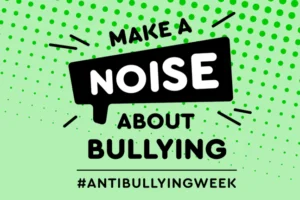This will apply even to the so-called “free” sites. Any that fail to introduce age verification can be fined and, ultimately, be blocked from publishing into this country.
This is a highly practical and pragmatic approach to online child protection.
It was a Conservative Party Manifesto commitment at the last General Election. To give effect to it the Government inserted clauses into the Digital Economy Bill. The Bill completed its passage through the House of Commons on 28th November. It is now with the House of Lords and is expected to become law in February, 2017, although the commencement date is likely to be some time after that to give the porn industry time to introduce the necessary systems.
The British Board of Film Classification (BBFC) has been appointed as the independent age verification regulator.
It will draw on more than a century’s experience of classifying or describing content in order to protect youngsters. It is expected that the age verification solutions that the BBFC will approve will be privacy friendly. The only thing a web site needs to know about you is “are you over 18?”. Not your name, your address, your credit card number or anything else.
There are four types of pornographic material circulating on the internet. One is straightforwardly and indisputably illegal: child abuse images, and we already have a good way of dealing with them. They are not affected by the new law because no web site can ever show them.
The second is pornographic material which can be viewed in public cinemas or bought over the internet which has been classified as 18 by the BBFC. Sites displaying this type of material will be caught by the new law. That’s logical.
Next is material which has been rated R18.
Under our current law this should only be sold on DVDs on the premises of licenced sex shops to persons over the age of 18. Yet it is always available online on commercial pornography sites. It shouldn’t be but the practical difficulties of enforcing the law – the very reasons why the Bill has been brought forward – mean this is a law honoured in the breach more than in the observance.
In the case of R18 the UK government, in effect, is proposing to liberalise the law because in future such material will be lawfully available online on sites which have age verification. I’m ok with that.
Finally we have material which is so extreme or disgusting that the BBFC refuses it any kind of classification.
They couldn’t anyway because under Crown Prosecution Service guidelines some of it is illegal under the Obscene Publications Act. I am not going to go into detail but if you want to know more you could do worse than look here. Yet this material is also viewable on porn sites currently easily accessible by children. That is wrong. It will have to go if the sites want to stay legal within the framework of the coming age verification regime.
Nobody is suggesting it is necessarily illegal for individuals to perform any of the acts listed but the question here is this: should images of such things be available and viewable on a medium where, worldwide, 1 in 3 of every user is a child, rising to 1 in 2 in parts of the developing world? I don’t think so. By the way in the UK and within the EU the proportion is around 1 in 5.
I know the internet utopians hate to hear this but the internet today is a family medium or a family service as much as it is anything else and the rules of the road are going to have to reflect that.
Goodbye Wild West. Hello civilization.





